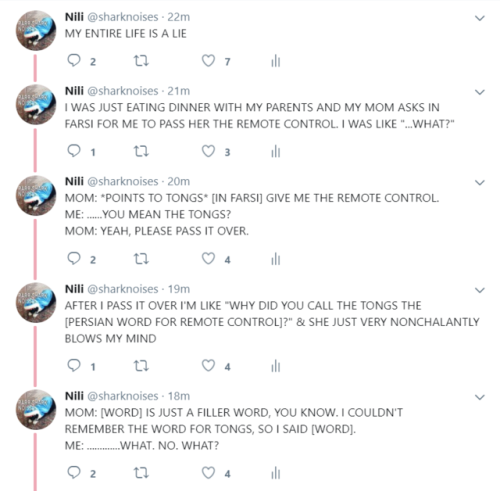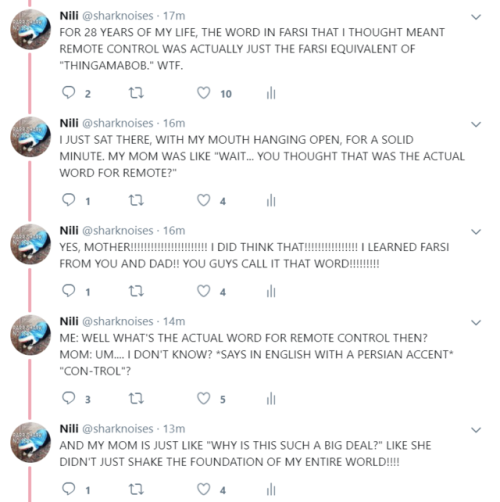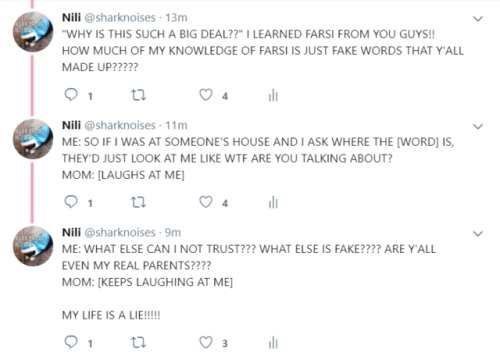Flaneurarbiter - Untitled

More Posts from Flaneurarbiter and Others
Me, trying to figure out how to say my name, but it's late so: tommorrow problem.
This is still so cool though
Updated: Kishite-Shabalic Script and a bit of the Kishic Language: Basics including an expanded list of nouns and verbs
I made this before but looking through it again I missed some things and made some mistakes, and so here is an updated version of this for y'all! As with the Kishite spoken language, the Kishic script descends from and is largely identical to the Shabalic script, thus the term Kishite-Shabalic. Kishite-Syllabic is one of three scripts used in Kishetal along with Kishic hieroglyphs (reserved for religious/cultic purposes) and the logographic Shetalic script, which has fallen almost entirely out of favour.

The Kishite-Shabalic script is syllabic, thus each symbol is representative of one syllable composed of a consonant and a vowel. In addition there are characters which serve as punctuation used to symbolize the conclusion of a thought, in similar fashion to the Latin "." and "?", and the presence of a proper noun or divine status. Though it should be noted that these are not always actually used.
Unlike the Shetalic script which is traditional formed using styluses pressed into clay, Kishite-Shabalic is typical written either through carving or the use of charcoal/ink.
Shetalic is shown below on the left with Kishite-Shabalic on the right, both say the same thing.

Keep reading for more linguistic babbling!
Vowels
As a general rule when transcribing the Kishite script, when two of the same vowel are put next to one another, they are treated as a single vowel, rather than elongated as we might see in English with words like book or meet or feat. Two different vowels, such as O and E, E and A, and so on, are almost never put directly beside each other. In the rare instances when this does occur the "stronger" of the two vowels will cover the other. The order of strength from least to greatest is as follows:
i-e-a-o-u
The vowels of the Kishite language are pronounced phonetically
Thus:
I as in sweet or pin
E as in egg
A as in palm
O as in coat
U as in tool
e.g. the substantive adjective "the Mighty" Urjali- + -ul (substantive ending) Urjaliul Urjaliul Urjalul (OOr-Jahl-OOl)

Special Note: One important differentiation between the Shabalic language and the Kishite language is that the Kishite language allows for the placing of multiple consonants in sequence. Take for example the Kishic name Ninma, in its original Shabalic form it would be Ninama (NI-NA-MA). Because of the fact that Kishite does have this trait, it has developed its own unique form of punctuation, the vowel drop. When placed below one of the syllabograms shown above, it cancels out the vowel, in essence rendering it mute. Ninma could alternatively be spelled using the formulation NI-IN-MA, similar to how Narul was spelled above, this is largely a matter of personal preference. The more traditional (Shabalic) form is often times considered more in keeping with nobility.

Sentence Structure
The Kishic language primarily follows a subject-object-verb structure.
Naru(u)l Nina(a)ma kimagiga(a)s Narul Ninma kimagigas. Narul Ninma carried. Narul carried Ninma.
Tamel kim(u)unur fabiguta(a)s Tamel kimunur fabigutas Tamel gates broke. Tamel broke gates.
Otilya (there is no -ia symbol in Kishite) Korithub luku ga. Otilya Korithub luku ga Otilia Korithia from is. Otilia is from Korithia
Enni Wi tuba chi Jahubur horu jawishaga The wind down the Mountain hard blows. The wind blows hard down the mountain.
Noun and Adjective Declensions
The Kishic language system consists of the following cases: nominative, genitive, dative, accusative, and possessive (the Shabalic language includes an instrumental case), and distinguishes between two numbers (singular and plural) and four genders, Masc/Neutral (undefined groups or individuals), Feminine, Inanimate, and Divine.
Divine beings such as gods and certain spirits as well as the Sun, Mountains, Rivers, and the Sea are always referred to in the Divine gender. Some monsters also fall under this category. (Water Bi (Inanimate), Lake Bi (Divine))
Objects which are not and have never been alive are rendered in the Inanimate gender. This can get confusing in some instances, for example while the word corpse Nahoku would utilize the masc/neutral form, the word bone, hashudi, would utilize the inanimate. Another example of this is the word Oli which can mean either blood or wine based on whether it utilizes masc/neut or inanimate declensions.
Not all inanimate objects are rendered into the inanimate. Words like spear shukala use the masc/neutral. This group typically consists of weapons and tools. The stem used will depend on the root word.
Plants as a rule are always rendered into the feminine.
Cities and countries are neutral.
Royal Titles have a specific declension.
A few examples of declension are given in the tables below.







Sample Verbs
Verb stems always end with -i. The exception to this is the verb to be, which rather takes the form of the conjugation, thus the first person singular indicative present sample or "am" would be wa.
Talk: Akki
Breathe: Ki
Eat: Ushki
Struggle: Nari
Sleep: Eshsi
Fight: Orishri
Hunt: Pabakazi (Literally Bow art(ing))
Dance: Irteti
Kiss: Mishuzi
Copulate (and the more vulgar equivalent): Seshiti/Tu(u)ki
More verbs will be provided below.
Verbal Conjugation
There are two conjugation groups within Kishite verbs, the ha/za/hi-conjugation and the wa/ya/wi-conjugation. Which conjugation is used is dependent on the verb in question, typically words with a Shabalic root use the wa -conjugation while words derived from native languages more often use the ha -conjugation.
Within the Kishite language there are two voices (active and medio-passive), three moods (indicative, subjunctive, and imperative), three aspects (perfective, imperfective/continuous, and simple), and three tenses (Past, Present, and Future)
The present tense can be identified by -i/-a/-u/-o, past by -as/-os/-us, and future by -ad/-id.
Indicative: Used for Stating facts and thus the mood of reality.
Active: The Subject is the agent of the verb.
Mediopassive: The agent acts as a reflexive agent of the verb (acting upon itself) OR the subject is the target of the verb.
Present Simple Active: Narul is hungry Past Simple Active: Narul was hungry Future Simple Active: Ninma will not be hungry Present Simple Mediopassive: Narul is accompanied by Ninma/ Narul cleans (himself). Past Simple Mediopassive: Narul was accompanied by Suru Future Simple Mediopassive: Narul will be accompanied by Mikrab Present Perfect Active: Narul has slept Past Perfect Active: Narul had slept Future Perfect Active: Narul will have slept. Present Perfect Mediopassive: Bop has been carried Past Perfect Mediopassive: Bop had been carried Future Perfect Mediopassive: Bop will have been carried Present Imperfective/Continuous Active: Narul is walking Past Continuous Active: The Deep Sun used to speak Future Continuous Active: Zatar will be fighting Present Continuous Mediopassive: Bop is being carried Past Continuous Mediopassive: Bop was being carried Future Continuous Mediopassive: Bop will be being carried



Subjunctive: Used for stating "unfacts", wishes and prayers, possibilities (may or might), hypotheticals, and opinions/judgements.
There is no Future conjugation for the Subjunctive, rather future events are expressed in the present through the use of may or might.
Additionally the Subjunctive is used for the following:
Jussive: used for suggestions and negative commands: What "should" or "should not" happen used only in the first person," we should leave/we should not leave" esh = should, na(e)sh = should not
Indefinite clauses: (if/until/whenever/whoever/however) ek = if, ekib = until, kowa(a)b =whoever, bowa(a)b = whenever, lowa(a)b = wherever, mowa(a)b = however
Purpose Clauses: "So that/ in order that" am = so that/in order that
Doubtful Assertions: "May not/Might not" er = may/maybe, na(e)r = may not, eb = might, nab = might not
Certain Future Assertions: "There certainly will..." erna = certainly (literally without maybe), na(e)rna = certainly not
Present Simple Active: We should run/ Narul wishes for rain Past Simple Active: Narul wished for rain Present Simple Mediopassive: If Ninma is stopped Past Simple Mediopassive: If Ninma was stopped Present Perfect Active: Narul has wished for rain Past Perfect Active: Narul had wished for rain Present Perfect Mediopassive: If Bop has been carried Past Perfect Mediopassive: If Bop had been carried Present Imperfective/Continuous Active: Narul is wishing for rain Past Continuous Active: Narul used to wish for rain Present Continuous Mediopassive: If Bop is being carried Past Continuous Mediopassive: If Bop was being carried


Imperative: Used for orders or commands/strong requests
Imperative is only conjugated in the second and third person singular or plural. Imperative is only used in the present and future, not for the past. Orders in the past are expressed as indicative. There are only Perfect and Imperfect Imperatives.
In the mediopassive form the imperative is translated as "Let them/you" for the first person of this the subjunctive is used "I/We should"
Present Perfect Active: Stop Future Perfect Active: You will stop Present Perfect Mediopassive: Let it stop Future Perfect Mediopassive: Let it be stopped. Present Imperfective/Continuous Active: Always stop Future Continuous Active: You will always stop Present Continuous Mediopassive: Let it be stopped (continuously) Future Continuous Mediopassive: Let it be stopped (continuously)


Additionally, the verbal system displays infinitives and participles in the present and past tenses.

Prounouns
There are four genders of pronouns; Masculine, Feminine, Neutral, and Divine. Objects with the Inanimate designation are given neutral pronouns. Only deities receive divine pronouns, other entities and places in the divine categorization will typically receive feminine pronouns, with the exception of celestial bodies which always receive masculine pronouns.
It is considered improper to address both royalty and deities with pronouns, as such there are no specific first or second person pronouns for the Divine category.


Articles
As with pronouns there is no "inanimate" article group, rather inanimate subjects are given masc/neut articles.

Stay Tuned for the ridiculously long Dictionary post that will be coming soon(ish)!
This post and the dictionary post are why, despite being back, I still haven't been all that active. I'll respond to a couple tag games tonight and I'll try to do more tomorrow. I'm still planning on doing the Korithian Recipes! Money is just tight at the moment so I'm waiting for paychecks!
If y'all notice any mistakes or typos in this, send me a message so I can fix them! Same goes for if you have questions!
@illarian-rambling, @mk-writes-stuff, @kaylinalexanderbooks, @willtheweaver, @patternwelded-quill
@elsie-writes, @elizaellwrites, @the-ellia-west, @the-octic-scribe, @the-golden-comet
@finickyfelix, @theprissythumbelina, @autism-purgatory, @diabolical-blue , @tildeathiwillwrite
@katenewmanwrites, @leahnardo-da-veggie, @paeliae-occasionally, @melpomene-grey
@drchenquill, @marlowethelibrarian, @winterandwords, @phoenixradiant, @pluttskutt
@dyrewrites, @unrepentantcheeseaddict, @roach-pizza, @rivenantiqnerd, @pluppsauthor
@flaneurarbiter, @dezerex, @axl-ul, @surroundedbypearls
@treesandwords, @the-golden-comet
Honestly same, but this idea is as golden as menaleas' treasure
what if. spartans who don't like how smooth their skin is. who when out of their suits are disturbed by how smooth their skin is. the texture of the bodysuit that holds the gel layer is textured and that feels better.
all the injuries. all the hits they've taken. the pain they've endured. yet no scars to show for it. it feels wrong. their skin is far too smooth.
in a way, yes, their armor is their uniform. a second skin. but it's also what protects them - not entirely physically - but also mentally. when their body isn't as mangled as it seems to be, the ridges and grooves and texture of their armor and the bodysuit makes their bodies seem a little more accurate to how they feel they should be.
Aww, she's doing great
pounce!
This is funny, and kinda reminds me about how I found out that the black and white movie that Kevin watches in home alone is fake
Like, oh my god my whole childhood was a lie



SO APPARENTLY MY ENTIRE LIFE IS A LIE HOW HAS YOUR GUYS’ NIGHT BEEN
"There's only room enough for one of us"

The greek prefixes we were forced to learn in high school is coming in handy
Observation #1: The prefix "a-" means "none", such as in "asexual", "apolitical" and "Atheism".
Observation: The word "unicorn" is a combination of "uni", meaning "one", and "cornus", meaning "horn".
Conclusion:

This is an acorn.
I love these colors









carrieaf_ on ig
Out of Context Lines Tag
i was tagged by @somethingclevermahogony twice, so I guess I'll put two lines here.
"Alia read the address by the light of her lantern once, twice, three times to ensure that she had the right place, that the messy, panicked scrawl hadn't obscured some important detail from her.
It was."
"They could do nothing but watch, as the very forces that supported their magnificent city tore homes to shreds."
I'm coming with!

And I brought a fancy knife!
🔪
Every Ides of March I spend on this app I'm gonna add a new knife. Let's go stabbing!! :)
This is a perfectly reasonable amount of drama



Please take these overly dramatic Ishtar siblings
-
 flaneurarbiter reblogged this · 2 years ago
flaneurarbiter reblogged this · 2 years ago -
 flaneurarbiter liked this · 2 years ago
flaneurarbiter liked this · 2 years ago -
 rubytealsmarty liked this · 2 years ago
rubytealsmarty liked this · 2 years ago -
 ishkia liked this · 2 years ago
ishkia liked this · 2 years ago -
 av3ndesora liked this · 2 years ago
av3ndesora liked this · 2 years ago